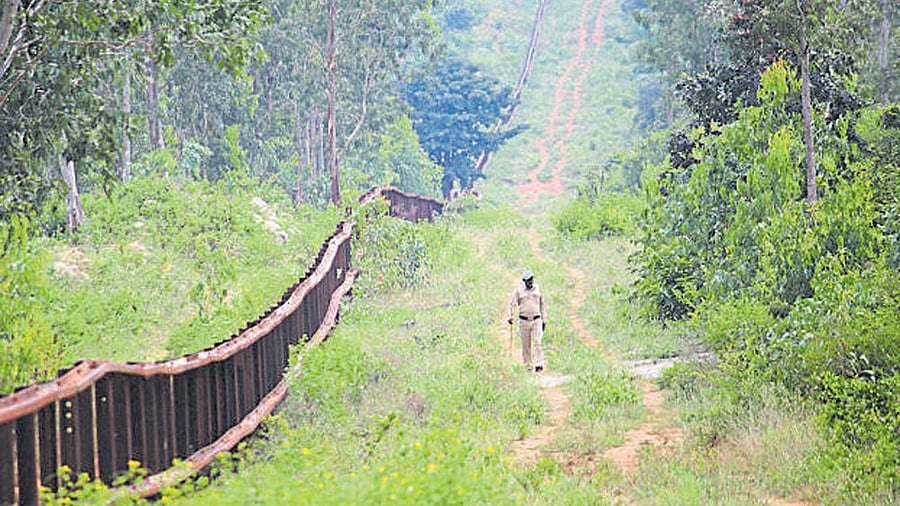
The campaign will focus on educating stakeholders about their individual and community forest rights, the role of Gram Sabhas in the FRA process and the procedures for filing claims, according to the ministry.
Credit: DH File Photo
New Delhi: The Centre has asked all states and Union Territories to conduct a month-long awareness campaign on the Forest Rights Act (FRA) from June 1 to improve the law's implementation and ensure wider participation among tribal communities and other traditional forest dwellers.
In its letter, the Union Tribal Affairs Ministry said the campaign should be carried out at state and district levels, led by district FRA Cells and project management units.
It called for collaboration with NGOs, academic institutions and community-based organisations with experience in implementing the FRA.
The campaign will focus on educating stakeholders about their individual and community forest rights, the role of Gram Sabhas in the FRA process and the procedures for filing claims, according to the ministry.
Other suggested activities include distribution of FRA land titles (pattas), providing soil health cards and agricultural inputs to FRA beneficiaries, linking them with schemes like PM-KISAN and Aadhaar enrolment and holding weekly meetings to clear pending claims.
The ministry has asked state governments to coordinate with relevant departments like agriculture, fisheries, panchayati raj and district collectors to begin planning immediately.
The Forest Rights Act, 2006, recognises the rights of tribals and forest-dependent communities over the land they have lived on and protected for generations.
However, its implementation has been marked by violations, with policy experts claiming that a large number of claims were wrongly rejected.
In 2019, while hearing a plea filed by a wildlife NGO, the Supreme Court ordered the eviction of more than 17 lakh families whose FRA claims were rejected.
Following nationwide protests, the court put the order on hold in February 2019 and directed a review of the rejected claims.
However, many tribal and forest-dependent communities allege that the review process remained flawed, with both the central and state governments failing to sincerely implement the law.
More than 51 lakh claims have been received under the Act till January 31 this year, with over one-third of them rejected, official data show.
The highest number of claims were received in Chhattisgarh (9.41 lakh), followed by Odisha (7.20 lakh), Telangana (6.55 lakh), Madhya Pradesh (6.27 lakh) and Maharashtra (4.09 lakh).
Chhattisgarh also tops the list in terms of rejections, with more than 4 lakh claims turned down. Madhya Pradesh has rejected over 3.22 lakh claims, followed by Maharashtra (1.72 lakh), Odisha (1.44 lakh), and Jharkhand (28,107).